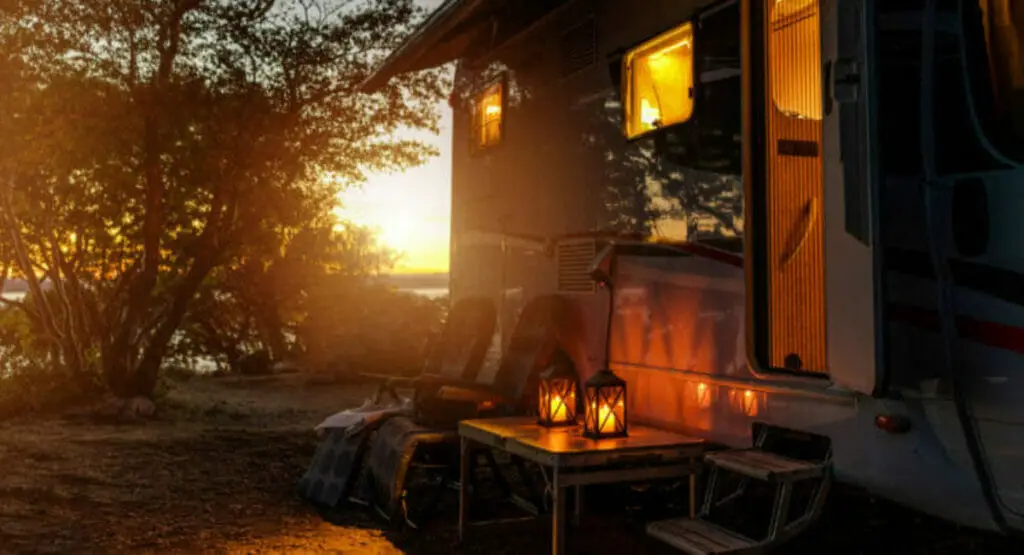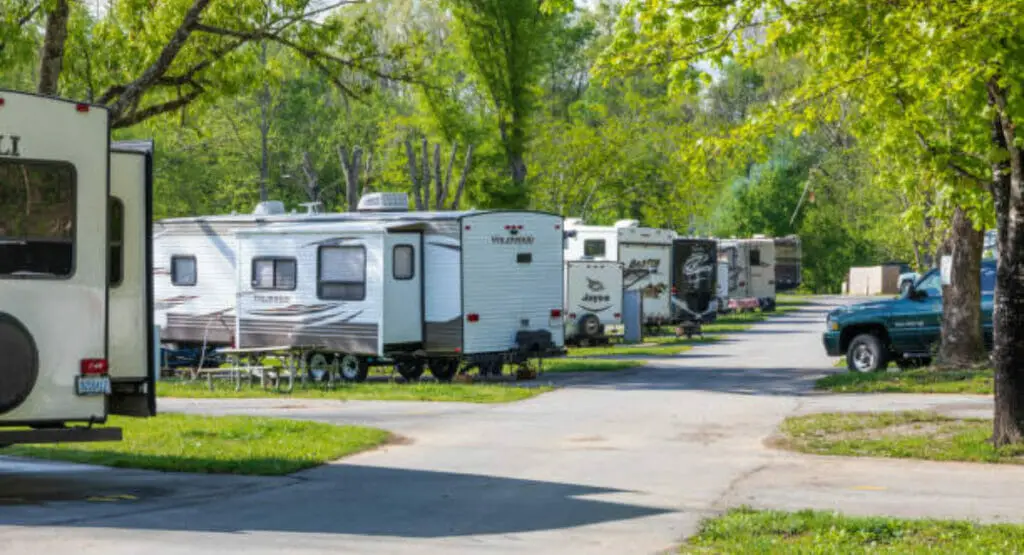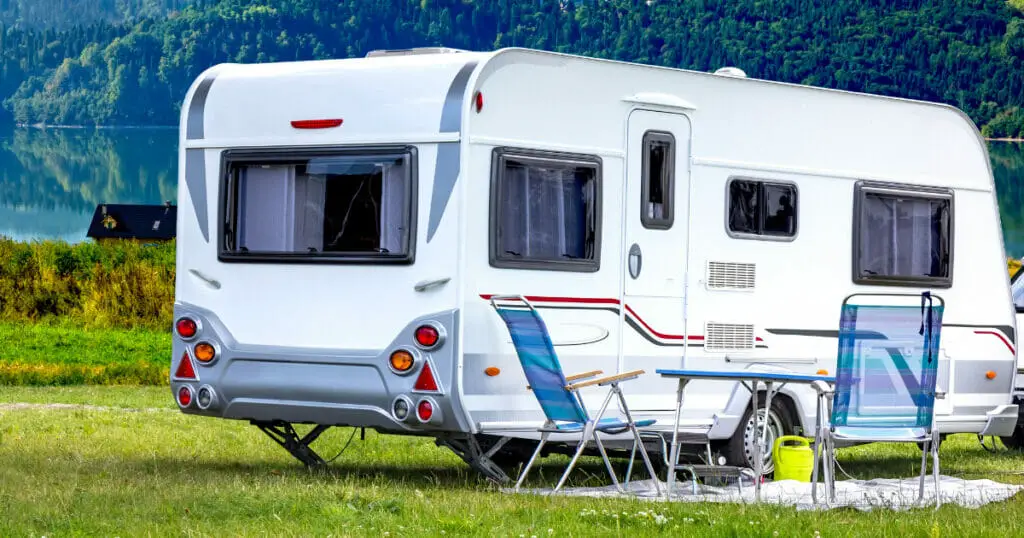RV vs. Van Life is an in-depth look at the pros and cons of both RV and van life. There are many differences between the two ways of life, from the amount of space available to the costs of ownership and maintenance. The guide also covers the benefits and disadvantages of each lifestyle and helps readers decide which is right for them. With this guide, readers can explore both RV life and van life and make an informed decision on their journey.
Nomadic lifestyles include RV life and van life. Both offer the freedom to hit the road and explore new places, but they have some key differences. In this article, we will explore the pros and cons of each type of living situation and compare them to help you decide which one is right for you. Whether you’re an adventure seeker looking to escape the constraints of traditional living or a retiree looking to see the country, RV and van life offer exciting opportunities to live life on your own terms.
1. What is RV life?
A recreational vehicle life, commonly known as RV life, is a way of life where people live in recreational vehicles (RVs) full-time or for extended periods of time. RVs are typically large vehicles with living quarters built in, including a kitchen, bathroom, and sleeping areas. They can be self-powered by an onboard engine or towed behind a car. RV life allows individuals or families to travel and explore new places without being tied down to a specific location. Many people who choose RV life are attracted to the freedom and flexibility it offers, as well as the opportunity to experience different parts of the country and even the world. RV life can be an excellent option for retirees, families, and adventure seekers alike. Some people enjoy the social aspect of RV life and the sense of community found in RV parks and campgrounds. Others prefer the solitude of boondocking, or camping without hookups, in remote areas. Overall, RV life is a unique and exciting way to live that offers a sense of freedom and adventure.
2. Benefits of RV life
There are many benefits to RV life, including the freedom and flexibility it offers. One of the main advantages of RV life is the ability to travel and explore new places without being tied down to a specific location. This allows you to see different parts of the country and even the world and experience a wide variety of climates and landscapes. Additionally, RV life can be more affordable than traditional living. The cost of owning and maintaining a recreational vehicle is typically lower than that of a home, and you won’t have to pay rent or a mortgage. RV life also offers the opportunity to connect with nature and enjoy the great outdoors. You can engage in activities like hiking, fishing, and bird watching because many RV parks and campgrounds are situated in stunning natural settings. Families may find the RV lifestyle to be a great choice as it allows for quality time spent together while having new experiences. Overall, RV life offers many benefits and can be a fulfilling and rewarding way to live.
3. Pros and cons of RV vs van life
Both RV life and van life offer the freedom and flexibility to hit the road and explore new places. But depending on your lifestyle and preferences, there are some significant differences between them that might make one a better fit for you.
One of the main differences between RV life and van life is the size and type of vehicle. RVs are larger and more spacious than vans, and they typically have more amenities and living quarters built in. This can be a major advantage for families or those who need more space and comfort. As they are made specifically for full-time habitation, RVs also frequently have higher levels of dependability and maintenance-free operation. However, they might cost more to buy and run, and they might be challenging to maneuver in small spaces.
Van life, on the other hand, offers a more compact and minimalist living experience. Vans are typically smaller and easier to maneuver, making them a good option for those who want to travel light and visit more remote locations. They are also often cheaper to purchase and maintain than RVs. Living in a van can be more challenging in terms of comfort and amenities because vans typically have less space and fewer built-in features. Van dwellers frequently need to get more creative with storage and organization, giving up some of the comforts of traditional living.
4. Cost comparison between living in an RV and a Van
The cost of RV and van life can vary depending on a number of factors, including the type and size of the vehicle, the length of your trip, and your destination. In general, however, RV life tends to be more expensive than van life.
RVs are typically larger and more luxurious than vans, and they can have a wide range of amenities and features built in. This can make them more comfortable and convenient for long-term living, but it also means they are typically more expensive to purchase and operate. RVs can range in price from a few thousand dollars for an older, used model to several hundred thousand dollars for a new, high-end RV. Additionally, the cost of ownership may increase because RVs typically require more fuel and maintenance than vans.
Van life, on the other hand, is typically less expensive than RV life. Vans are smaller and simpler than RVs and often have fewer amenities and features built in. Due to their lower maintenance and fuel requirements, they may be more cost-effective to buy and run. Additionally, van life allows for more flexibility in terms of where you can stay, as you can park and sleep in a variety of locations, including campsites, rest areas, and even on the street in some cases. This can save money on accommodations compared to RV life, where you may have to pay for campsites or RV parks.
5. RV and van living essentials
Here are some essential items for RV and van life:
1. A reliable vehicle: This is the most important item for RV and van life. You need a van that is in good condition and can handle the rigors of the road.
2. A bed or sleeping area: You will need a comfortable place to sleep in your van. This can be a bed, a mattress, or a sleeping platform.
3. Basic kitchen items: You will need pots and pans, utensils, dishes, and a small refrigerator for storing food.
4. Bedding and linens: Make sure you have comfortable bedding and enough linens for the bed in your van.
5. A generator: A generator can be used to power your van when you are not hooked up to a power source.
6. Water storage and filtration system: You will need a way to store and filter water for drinking, cooking, and cleaning.
7. A waste water tank: Vans may have a waste water tank that needs to be emptied periodically. Make sure you know how to properly empty and maintain the tank.
8. Outdoor gear: Depending on where you are traveling, you may need items such as a camping stove, a tent, or a fishing rod.
9. Personal items: Don’t forget to bring along your personal items, such as clothes, toiletries, and any medication you may need.
6. Tips for RV and van life
RV and van life can be an incredibly rewarding experience, offering a unique way to explore the world and experience new cultures. To make the most of this lifestyle, there are a few tips and tricks that one should keep in mind. For example, opt for a camper van, make sure your vehicle is reliable, get organized, don’t sweat the small stuff, keep certain items with you, and practice stealth van life. By following these tips, you can ensure that your RV and van life journey is as smooth as possible.
Here are some tips for RV and van life:
1. Research the different types of RVs and vans and choose the one that best suits your needs.
2. Decide on a budget and stick to it;
3. Make sure your RV or van comes with windows and insulation.
4. Make sure you have a good storage system in place.
5. Have a plan for where you will be parking your RV or van for the night.
6. Research campgrounds and other potential places you can stay;
7. Have a plan for how you will handle basic necessities like water, food, and waste.
8. Bring along a first aid kit and other emergency supplies.
9. Get to know your RV or van and its limits.
Have fun and enjoy the adventure!
7. Resources for RV life vs van life
Resources for living the RV life frequently highlight the benefits of larger vehicles, including their added space and luxury. While living in a smaller vehicle, van life materials, on the other hand, typically concentrate on the practical aspects of doing so, including how to turn a van into a home, what kind of vehicle is best for van life, and how to live sustainably while traveling. Furthermore, resources for RV living frequently provide guidance on where to find facilities and campsites, whereas those for van life may offer guidance on where to locate free camping areas or other reasonably priced lodgings.
Conclusion
After weighing the pros and cons of van life and RV life, it is clear that both offer exciting lifestyles for those looking to explore the world. While van life offers more off-grid locations, more free camping, and smaller families, RV life offers more storage, more comfort, and the potential to rent out your RV. Ultimately, the best way to decide is to choose the lifestyle that best aligns with your needs and goals.



